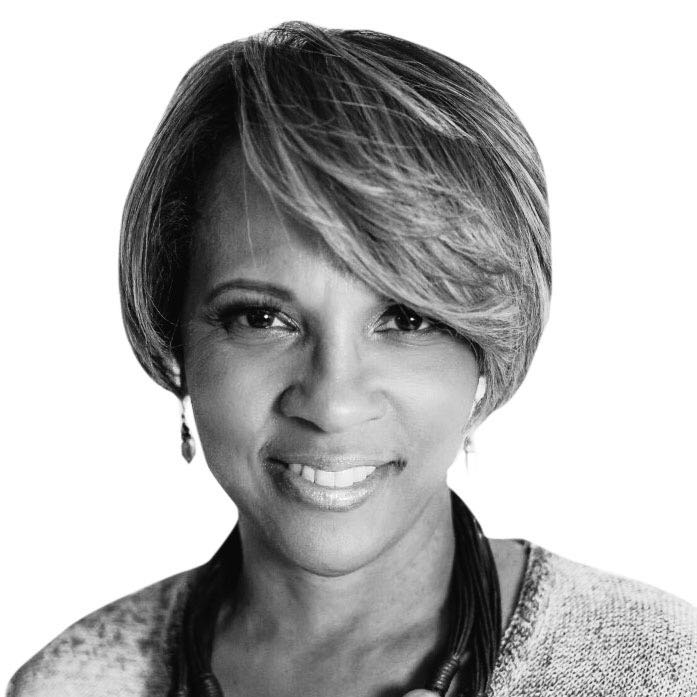I will not have enough column space to describe the challenge of what it truly means to be a strong, independent-minded, professional black woman in America. But let me be clear: It is not an easy existence. The marring stereotypes. The challenging intersectionality with our white sisters. The daily marginalization by men of power. These are just a few of the realities we deal with daily.
But most of all, it is living with the double whammy of both race and gender. Senator Kamala Harris has been negotiating this minefield all her life. I know this because I have, too. That is because black women, unlike any other group of people, live with the unique burden of both race and gender. And we get neither of the benefits.
What do I mean? Former President Barack Obama is a black man. So, while many did not think a black person could win the presidency, the fact is that his maleness in 2008 was an asset. He was juxtaposed against Hillary Clinton, a white woman, who was being viewed through the lens of what her hair looked like. What was she wearing? Could she keep her philandering former president husband in line? Was she up to the job of president? Would she be emotional. And on and on.
ADVERTISEMENT
On the flip side, white women of privilege like Clinton and Sheryl Sandberg, while they certainly face sexism, also get the benefit of being white in a nation built on the backs of slave labor, black female domestics (i.e., The Help), and legalized discrimination against non-white people. White women have benefited the most economically by being married to white men of power and privilege, and from affirmative action programs over the past 50 years.
Worse, white women have historically relegated black women to second-class status from slavery forward—just look at the suffragist movement of the late 19th and early 20th centuries. Black women were not included. Because they were black. Although black men were given the right to vote with the 15th Amendment in the late 1800s, black women did not get those rights because they were women. Although all women were given the legal right to vote in 1920 with the 19th Amendment, black women continued to face many more challenges to voting, particularly in the deep South.
In a nutshell, being female in America, and in media shorthand, means being white. And being black means being male. Where does this formula leave women of color? We are often invisible, unless we are in entertainment like Oprah, or sports legends like Serena Williams.
Enter Senator Kamala Harris. She is attractive. Slender. Married. Has two step-children. Is well educated and has an estimated net worth in the low millions. Not your typical black female professional, who is single, childless (or a single head of household) and financially vulnerable despite educational achievement and struggling to navigate the treachery of the corporate work environment.
With this backdrop, and a Democratic Party that has as its most loyal constituency black women voters, can the savvy senator from California successfully rebuild the Obama coalition in the primaries (which will have likely 10 or more candidates, maybe many more) and go on to secure the Democratic nomination to face President Trump in 2020?
I honestly do not know the answer. But the 800-pound elephant in the room is the fact that Kamala is a black woman. She will face opposition from the black men, white women, and white men in her own party. Not to mention the American electorate in the deep South, the Rust Belt, the aging northeast and browning Southwest. She will be told to wait her turn. Senior Senator Dianne Feinstein has already hinted at this by backing her friend Joe Biden should he decide to run in 2020.
So far, however, Harris has ignored the obvious obstacles, to her credit. But the obstacles will come—some have already started suggesting that Harris, like Obama before her, was not a natural-born citizen, and that she is disqualified from the presidency. She was born in Oakland, California and has lived there her entire life (except for her four years at Howard University).
Lastly, the question will be, is Harris right for the rest of America? She is unabashedly liberal. A major proponent of LGBTQ rights. And yet her prosecutorial record has already come under scrutiny from her left flank. She’s apparently not left enough for the left with some of the decisions she made as California’s attorney general.
She is a member of the nation’s oldest and largest black women’s Greek-lettered organization (Alpha Kappa Alpha Sorority, Inc.), as am I. She will head to Columbia, South Carolina for a fundraiser this week hosted by our members there. She will need to court black women primary voters, while not alienating white voters.
She will have to do a kabuki dance of sorts to emerge victorious from the crowded progressive primary field and then come to the center to win a tough general election against a very polarizing and hard-hitting President Trump.
I will end where I began: Kamala Harris is running. And she will be formidable. She raised over $1.5 million dollars the day after announcing her candidacy. Yet, with all that comes with being a black woman in America, I am optimistic and skeptical all at once.
People will compare Harris to Obama, but they are not the same. He was more centrist in 2008 than she is now. He is a man. He had a photogenic family. My thought is that she doesn’t get the nomination but that she will have strategically positioned herself to be a vice presidential candidate on a ticket led by yet another white man.
Sophia A. Nelson is author of the award-winning book Black Woman Redefined: Dispelling Myths and Discovering Fulfillment in the Age of Michelle Obama.






